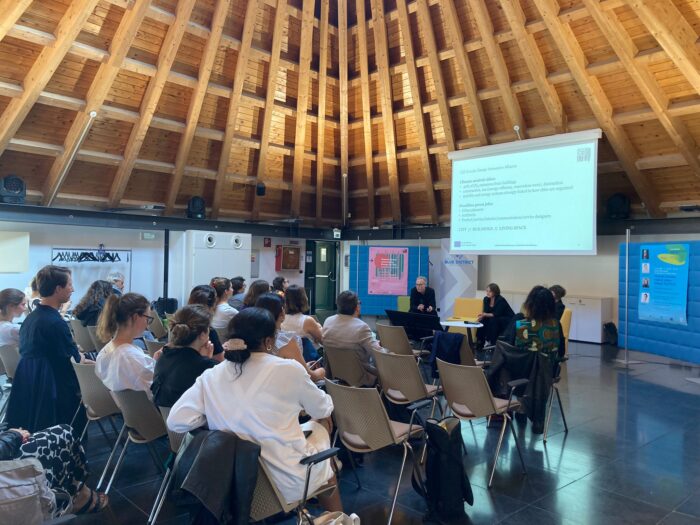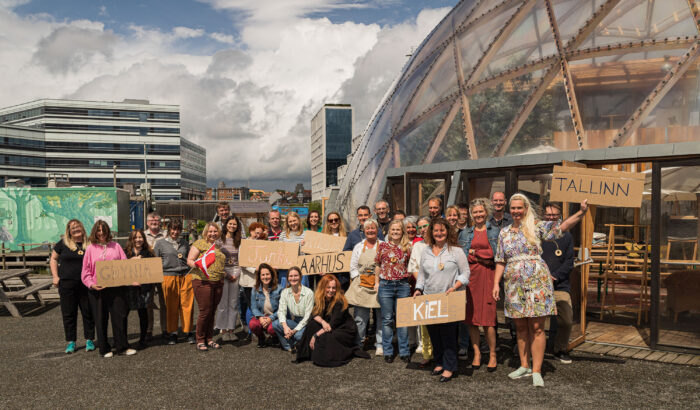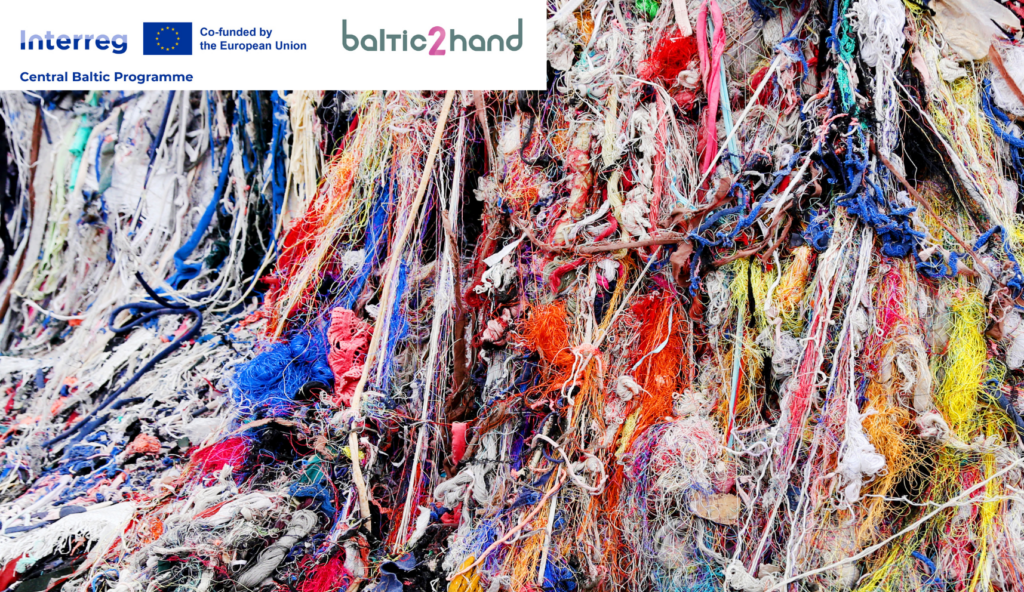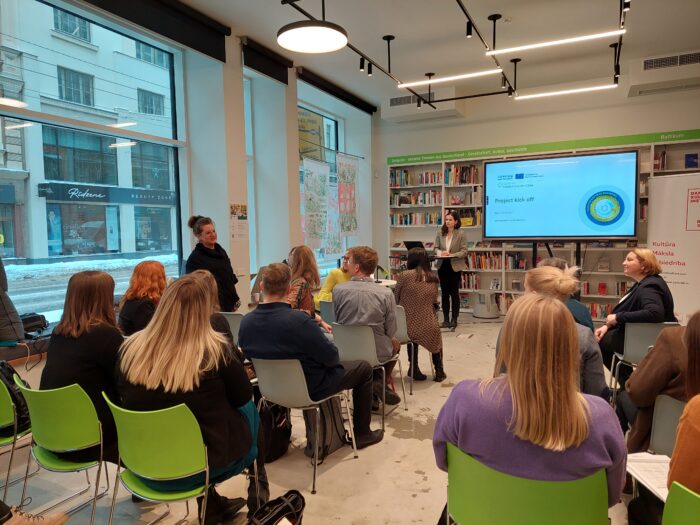In Tallinn Business Incubator, we guide companies to incorporate the principles of circular economy into their business models.
The need to adapt business models arises from established regulations and the necessity to remain competitive. In a situation where small entrepreneurs compete with large companies, they gain a competitive advantage through environmentally conscious behaviour due to their flexibility and quicker ability to adapt.
The goal of the business incubator is to support sustainable, green, and circular economy entrepreneurship through awareness-raising and practical solutions.

Quick learning
Circular Economy 1: What is Circular Economy?
What is the Circular Economy? What are its objectives? Why is it important to incorporate the principles of the circular economy into your company’s operations? How can this be done?
In the first video of the Tallinn Business Incubator’s series on circular economy educational videos, the topic is introduced by circular economy expert Markus Vihma.
Circular Economy 2: How to Choose Materials for Products?
Every material has an impact on the environment. What should be considered when selecting materials? How can you choose environmentally friendly materials? How can the selected materials address problems in other areas?
In the educational video, KIRA shares its experience with circular economy materials. KIRA is a sustainable footwear brand that produces durable shoes from old tyres and plastic bottles.
Circular Economy 3: What to Focus on in Production?
What are the main circular economy principles to focus on in production? What should be done with production waste? How can resources be used efficiently in production?
In the educational video, Paragon Sleep shares its experience, as they produce duvets, pillows, technical textiles, and beds. Paragon Sleep recycles 100% of production waste in home textile manufacturing.
Circular Economy 4: How to Design Durable Products?
What makes a good reusable product? What should be considered in product design?
In the educational video, Comodule shares its experience with circular product design. Comodule connects bicycles and scooters to the internet and is the only company outside China that produces electric scooters.
Circular Economy 5: How to Design a Product for Reusability?
How to Design a Product with Its End of Life in Mind? What happens to the product at the end of its life? What should be done with the materials of the product at the end of its life? Product as a service?
In the video, sustainable design brand Stella Soomlais addresses questions regarding long-lasting product cycles. She designs and manufactures leather accessories that are built to last and offers aftercare, repair services, and rental options for her products.
Circular Economy 6: How to Offer a Product as a Service?
How to Offer Services Instead of Sellable Products? Does the consumer need the product or its function? Which products can be offered as a service? What are the benefits of the service?
Lindström, a company providing textile services, shares its experience. Lindström rents out various textiles, including workwear, mats, and hotel textiles.
Circular Economy 7: Opportunities in the Food Industry
How can the principles of the circular economy be applied in the food industry?
Gelatex shares its experience in the food industry, as they produce unique materials—nanofibres used in the production of clean meat. Gelatex aims to prevent waste from the meat industry from being generated in the first place.
Casestudies
Useful links
Useful Tools, Reports, and Learning Materials
Here you will find useful links, reports, and tools to help your company successfully implement the principles of the circular economy. We have gathered practical information to support you in the implementation of the circular economy.
Overview of Second-Hand Business Models in Estonia, Latvia, Finland, and Sweden
As consumer awareness of textile reuse increases and the overall public and political focus on textile circular economy grows, the fashion sector has shown an increased interest in circular commerce and rental models.
Read moreCurrent Status of Second-Hand Businesses and Textile Waste in the Baltic Sea Region (Finland, Sweden, Estonia, and Latvia)
The aim of the report is to clarify the current status of second-hand commerce and textile waste in the Baltic Sea region, covering Finland, Sweden, Estonia, and Latvia. The report reviews potential challenges and opportunities in the second-hand commerce market in general.
Read moreSuccess Stories in the Circular Economy
ENVIR has gathered success stories of the circular economy in Estonia.
Read more


